- Two junta officers detained after Arakan Army seizes three camps in Thabaung
- Junta torches at least 11 villages in Kyaukphyu Twsp over past year: Residents
- Tactical failures worsen explosive ordnance risks for civilians
- Children deprived of education amid regime airstrikes, ‘instability’ claims
- Regime using Constitutional Tribunal Law amendments to build ‘personalist dictatorship’: ISP-Myanmar
Regime accused of using cluster bombs in Arakan State
The regime used two cluster bombs in a clash with the AA near the military's Light Infantry Battalion No. 373 in Ann on October 10, according to sources close to the military.
12 Oct 2024
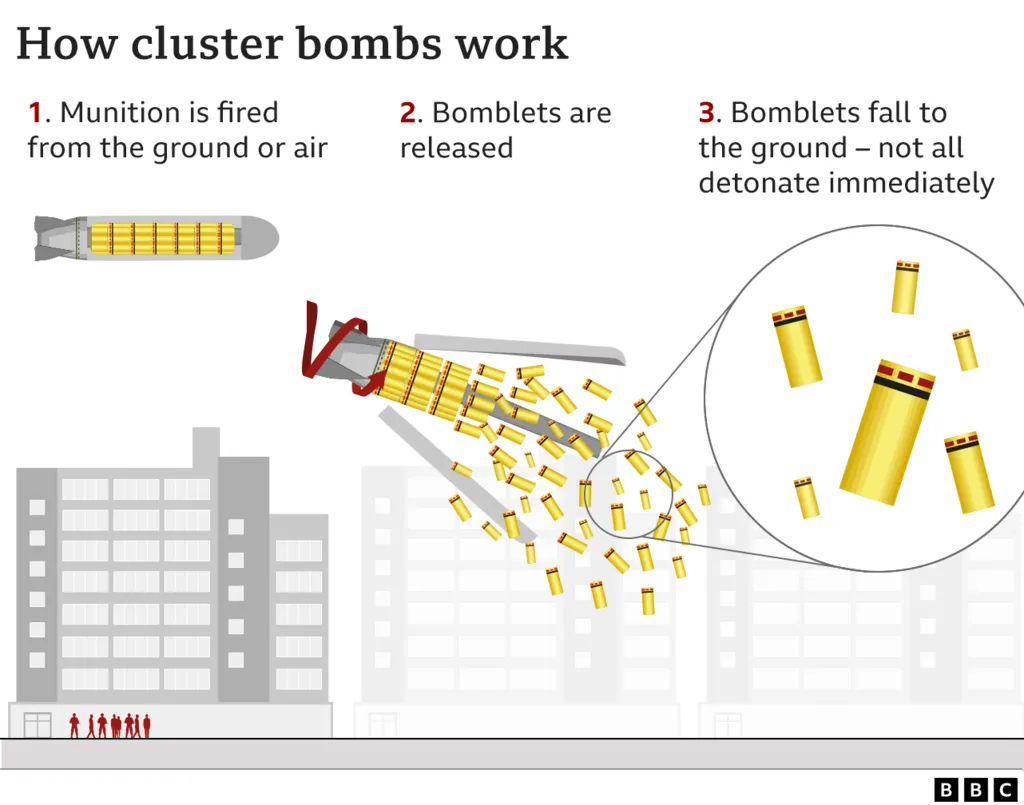
DMG Newsroom
12 October 2024, Sittwe
Myanmar's military regime, which has faced a string of defeats in its war with the Arakkha Army (AA) over recent months, has been accused of attacking the opposition and civilians with internationally banned cluster munitions.
The regime used two cluster bombs in a clash with the AA near the military's Light Infantry Battalion No. 373 in Ann on October 10, according to sources close to the military.
"The regime reportedly dropped two cluster bombs on AA positions during the Ann fighting, according to military sources. No casualties were reported in the clash," said Zin Yaw, a captain of the Civil Disobedience Movement (CDM). "The regime may use cluster bombs on the Arakan front as the AA steps up offensive attacks in Ann, Taungup and Maungdaw townships."
Cluster munitions can be dropped from the air as well as fired from the ground. Their use is internationally banned due to the weapons' ability to kill many people, and for the danger they pose to linger long after they are dropped or fired as artillery.
Sixteen people including at least one child were killed and five others were injured on October 7 in a junta airstrike on Tanhlwe Ywama Town, part of Arakan State's Taungup Township. A junta jet fighter dropped two bombs on Sarpyin and Konbaung villages on September 16.
Residents believe that the regime's attacks in Taungup Township used cluster bombs that could present an ongoing threat to civilian populations, much in the way that landmines do.
"People here think that the regime dropped more than 10 bombs in one day. In fact, it only spread around because of the secondary explosions. I am worried that some of the bombs still have not exploded and will be a danger again," said a local resident in Taungup.
The international Convention on Cluster Munitions defines a cluster munition as "a conventional munition that is designed to disperse or release explosive submunitions." Those submunitions can number in the dozens, and cluster bombs are controversial particularly due to their high "dud" rates and the danger this unexploded ordnance poses to civilians.
Chemical weapons can also come in the form of cluster munitions.
"The people should not lose sight of the news of the regime's [cluster bomb] airstrikes. If you are hit by a bomb, it could be a chemical bomb with fumes, so it is best to protect your skin with wet clothes as soon as possible. You should also carry water bottles and extra clothes in the bunkers," Captain Zin Yaw said.
The Myanmar military previously purchased cluster bombs from foreign countries, but later produced them at the No. 21 arms manufacturing facility commonly known as KaPaSa and run by the military's Directorate of Defense Industries (DDI) in Kazunma Village, part of Magwe Region's Seikphyu Township, Captain Zin Yaw added.
The Myanmar military has been using cluster bombs since 2022, according to a 2023 report by the Cluster Munitions Coalition (CMC). The CMC report states that the regime used cluster bombs in Shan, Kayin, Kayah and Chin states in 2023.




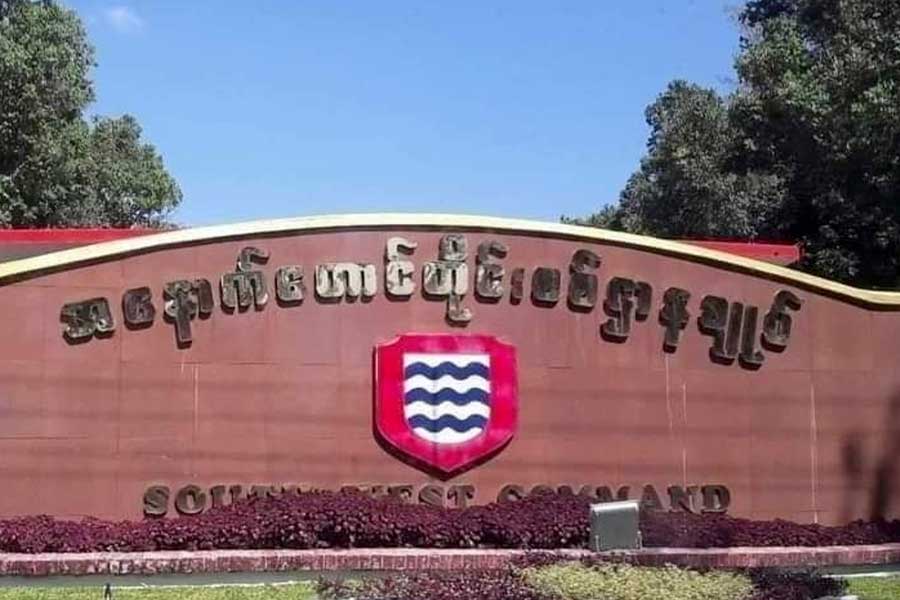
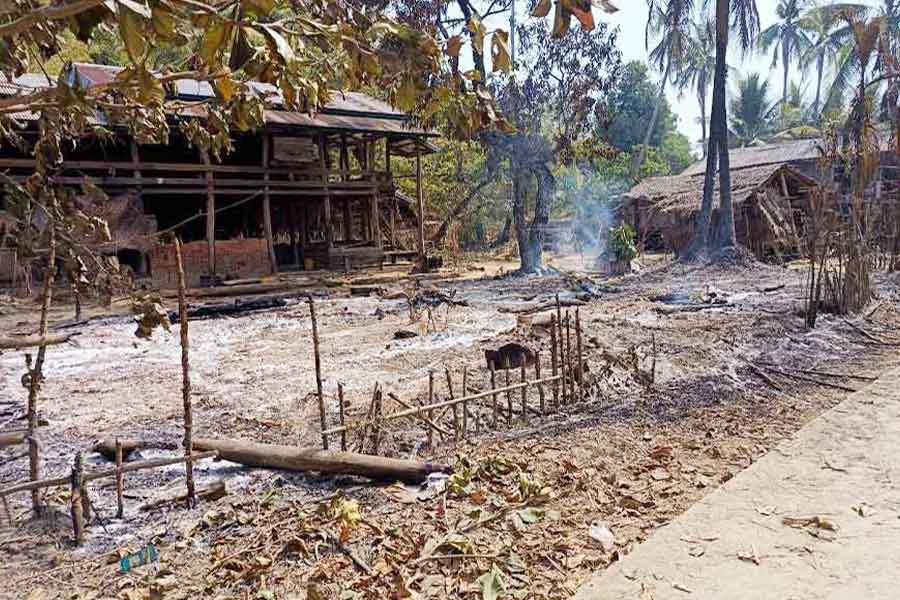
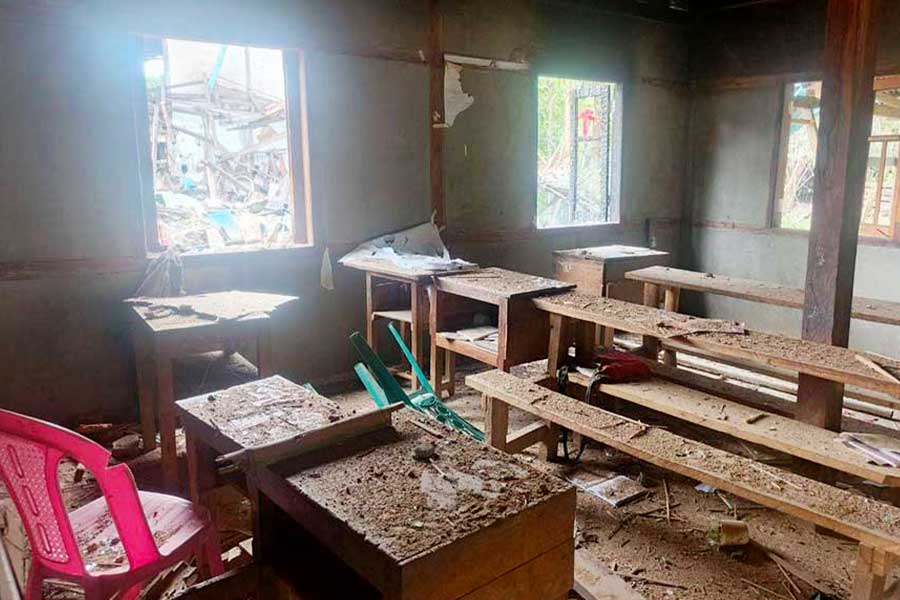
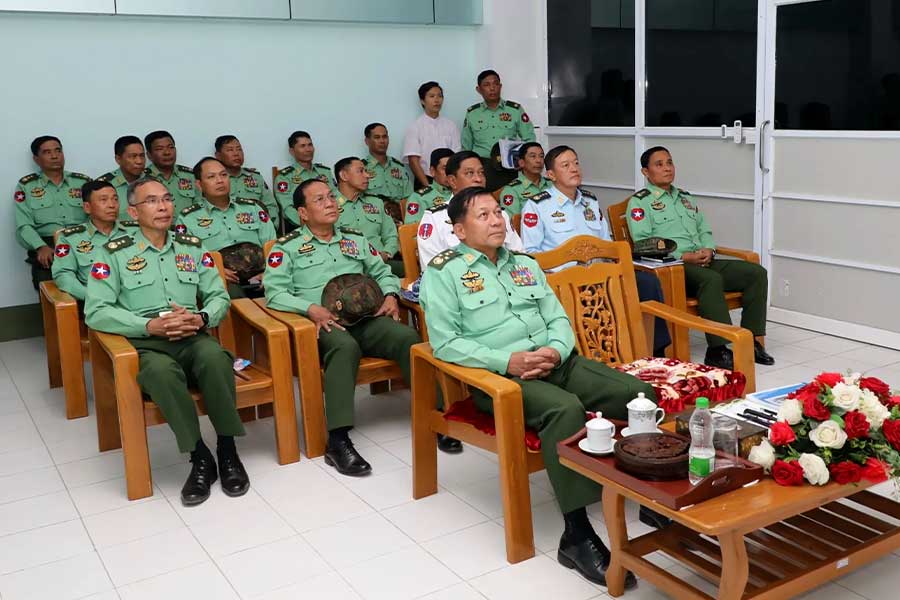
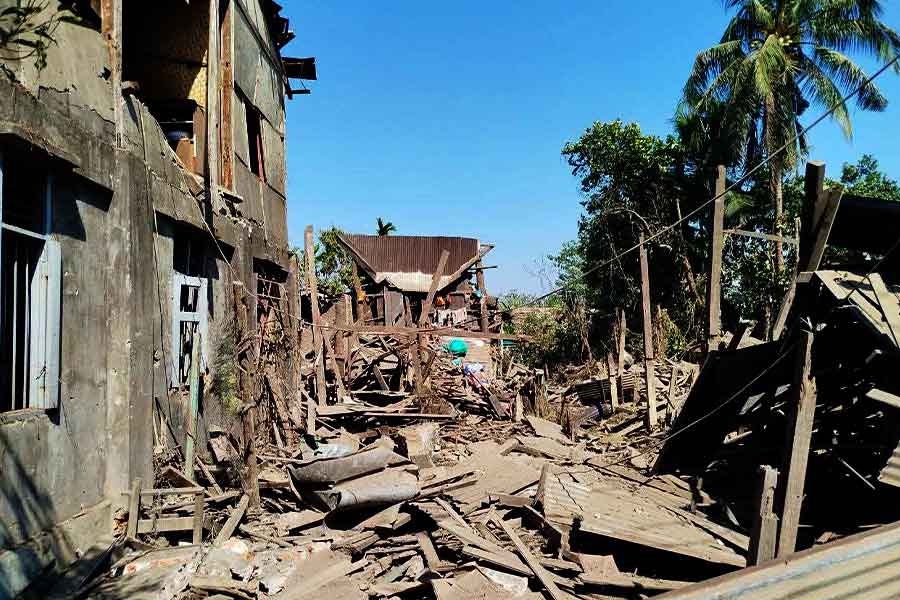







.jpg)
